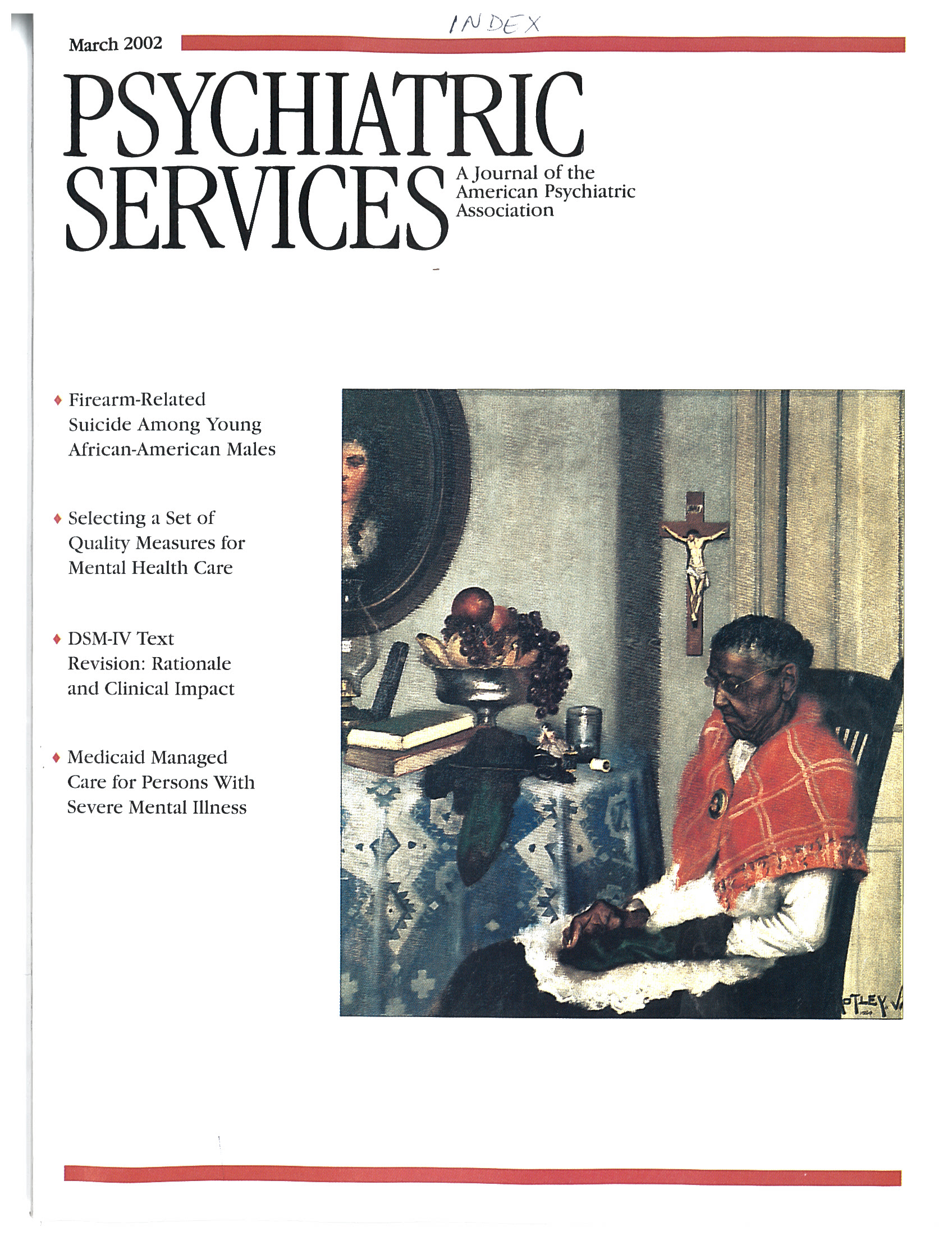A Level-of-Functioning Self-Report Measure for Consumers With Severe Mental Illness
Abstract
OBJECTIVE: Most scales that measure the ability of consumers with severe mental illness to function in community settings are designed to be completed by case managers or other clinicians. The objective of this study was to develop an instrument that could be completed by consumers. METHODS: The 17-item clinician version of the Multnomah Community Ability Scale (MCAS) was adapted for use as a self-report instrument (MCAS-SR). An initial version of the MCAS-SR was reviewed for appropriateness and clarity by 20 consumers and four peer counselors and then revised. Test-retest reliability was studied with 37 consumers, and construct validity was examined in a correlational study of 288 consumers. Further validation involved correlations among consumer self-reports, case manager ratings, and ratings by research interviewers. RESULTS: The instrument was acceptable to consumers; most consumers (80 percent) could complete it without assistance. The total score test-retest intraclass correlation was .91. Internal consistency was high (Cronbach's alphas greater than .80). The total score on the MCAS-SR was correlated with that on the Brief Symptom Inventory (Spearman's rho=−.59) and with that on the Mental Component Scale of the Short Form 12 (Spearman's rho=.61). The Spearman's rho correlation between consumer and case manager total scores was .41 for urban consumers and .21 for rural consumers. The correlation between consumer total scores and research interviewer total scores was .57 in the urban sample and .31 in the rural sample. CONCLUSIONS: The MCAS-SR is a reliable self-report instrument and can be valuable as an outcome measure and in treatment planning.



